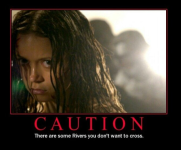SimonDoom
Kink Lord
- Joined
- Apr 9, 2015
- Posts
- 20,048
I think the real issue here isn’t whether a certain character or creator is misogynistic. It’s about artistic freedom. Under the guise of criticism, some try to block the portrayal of certain negative human traits because they might “harm the social fabric.” You can’t make your character misogynistic, it might offend women. You can’t make them racist, it might offend minorities. You can’t depict the weak in a negative light, it might have real-life consequences. Where does it end? How is this any different from the LW crowd who insist on turning every story into a moral lecture?
What if I want a character who is sexist, violent, racist, or utterly depraved, not to teach a lesson, but simply because I find that character fascinating? What if my creativity has no interest in preaching love and world peace, and only wants to revel in being despicably nasty?
Did Marlon Brando traumatize that poor girl in Last Tango in Paris? Yes. Do I want that film censored? Absolutely not.
I agree with you. There's nothing inherently misogynistic about portraying a woman as a villain in a movie. At the same time, it's perfectly fair for the moviegoer to interpret what the "message" of the movie is, whether that message is intentional or not on the part of the filmmaker.
For instance, I don't think of Basic Instinct as misogynistic because of the way it subverts the femme fatale stereotype. Catherine Trammel has agency--more than any other character in the movie. She's always in control. A case for misogyny arises when the woman's role in the film is primarily to be a foil for a man, rather than to stand on her own. That's not the case in Basic Instinct. I think it IS arguably the case in some of Hitchcock's films. In his films I sense a lack of sympathy for female characters, an inability to see them as fully human as the male characters. The male characters are the ones that matter and the females are there to foil and deceive the men, or, in the case of a movie like Rear Window, to serve as an idealized female companion (Grace Kelly).

